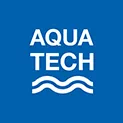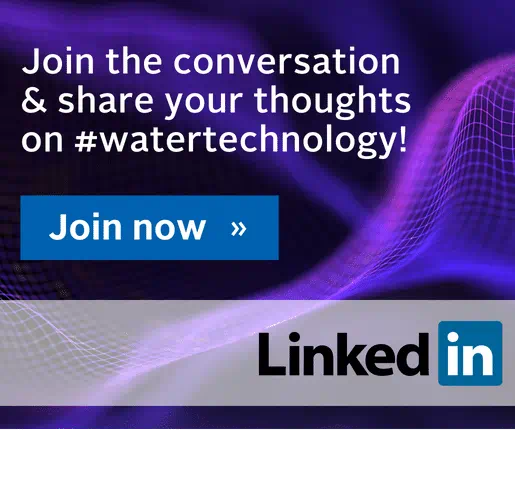Xylem has purchased Evoqua in a record $7.5 billion acquisition. What does this mean for innovation in the water sector? Tom Freyberg looks into the deal and asks industry experts for their views.
Record-breaking merger
A new year, a new major acquisition in the global water sector. In fact, a record gargantuan-sized acquisition at that.
US water technology company Xylem announced a $7.5 billion all-stock transaction agreement to buy fellow US major organisation, Evoqua.
The biggest acquisition in the water sector in recent years, it perhaps came as a surprise to many who have seen the two companies as past and future competitors. Now combining forces, the news sent a strong ‘Team US’ message over the Atlantic to Europe following the recent Veolia-SUEZ merger.
While Xylem has spent considerable time, resources and finance carving out its niche across the utility and digital markets, Evoqua has built a strong presence and market penetration in the industrial sectors. The marriage will see a strong portfolio of solutions combined with a robust service offering.
A flawless integration is needed
To get a clearer picture of the merged companies’ future, it’s important to look back at the past.
For Evoqua, it started after Siemens acquired US Filter from Veolia Environnement for $993 million in 2004, before Siemens Water Technologies was then sold to AEA Investors for €640 million in November 2013.
Renamed Evoqua Water Technologies and then raising around $500 million through an Initial Public Offering (IPO) in 2017, Evoqua bolstered a restructuring of business units and small acquisitions to build out its portfolio.
In theory, this could be a match made in heaven…in reality, the success will come down to the integration.
The other half of the story dates back to 2011, when ITT Corporation spun out its water technology and services business, Xylem, as a standalone company.
Xylem then went through a series of acquisitions to boost its digital portfolio, from smart metering company Sensus for $1.7 billion in 2016 to Singapore firm Visenti and Canadian smart water company Pure Technologies for US$397 million the following year.
In theory, this could be a match made in heaven: two major corporations combining offerings to cover the utility and industrial water treatment markets, linking together Xylem’s toolbox of hardware solutions with Evoqua’s service offering.
Furthermore, the solutions from the latter are well positioned for areas subject to growing regulatory focus, for example, water quality and wastewater biosolids.
Yet, in reality, success will come down to integration. Multiple acquired units from Xylem’s and Evoqua’s legacy of growth by acquisition will now be merged under one umbrella. For staff internally and customers externally, the integration will need to be flawless.
Capturing $140m in three years
The revenue numbers combined are enormous. Xylem and Evoqua generated over $7 billion in combined revenue in the 12-month period ending September 30, 2022, with $1.2 billion in adjusted EBITDA.
It’s been estimated that merged companies could deliver a “run-rate cost synergies” of $140 million within three years. This will be down to “scale efficiencies in procurement, network optimisation and corporate costs”.
The combined company delivers an unparalleled portfolio of advanced technologies.
While Xylem’s share price dropped from $108.8 on Friday 20th, to $99.32 on Monday 23rd following the announcement, the price rallied back up over the 100-dollar mark the following day ($103.35 at the time of writing).
Patrick Decker, who will remain as CEO and president of the merged businesses, said the “combined company delivers an unparalleled portfolio of advanced technologies, integrated services and application expertise across the water cycle”.
“Next level” acquisition
Naturally, an acquisition of this record size sparked varying views.
Reese Tisdale, president & co-founder of Bluefield Research, told Aquatech Online: “Pure-play water deals of this size in water are infrequent, at best. At the start of 2021, three billion-dollar water acquisitions of Innovyze, Forterra, and Aegion were considered momentous, but this is next level.
“And while it does not match the scale of Veolia’s blockbuster acquisition of Suez, it will certainly be worth watching how the integration of the two companies unfolds. The bigger the deal, the bigger the potential headaches– for employees and customers.”
Tisdale said that the recent digital play by Xylem could be accelerated through the additional channels.
"Given Xylem's almost messianic focus on digital in recent years, one can assume that Evoqua will be used as another channel to market beyond Evoqua's WaterOne platform,” he added. “The results will be in the execution, which will also now include Xylem’s newly announced digital partner, Spain-based Idrica, that aims to help bridge the myriad technologies.”
The bigger the deal, the bigger the potential headaches– for employees and customers.
Will Sarni, founder and CEO of Water Foundry and founder, Water Foundry Ventures, told Aquatech Online: “The year has started off with significant changes in the water sector with Xylem acquiring Evoqua and the planned spin out of the Danaher water quality companies this year. My bet is more consolidation plus “creative destruction” in the sector will set the pace for the year.”
He added: “Post-merger integration (Xylem and Evoqua) versus spin out (Danaher), there will be lessons to learn this year.”
Furthermore, a LinkedIn post posted on the news generated mostly positive, if mixed, responses.
Growing the industrial business
Ahead of an upcoming BlueTech Briefing on the merger, Conrad Hopp, Sr. analyst from BlueTech Research, told Aquatech Online: “The most immediate synergy is that Evoqua provides new sales channels and complimentary services for Xylem’s advanced technology portfolio into key industrial markets. Namely microelectronics, life sciences, and food and beverage.”
Xylem’s current industrial business accounts for 35% of total revenue. Combined, the industrial segment is expected to reach 47% of total revenue before synergies.
Geographically, the US will remain the largest market for both companies, with a combined revenue of $3.8 billion, according to Xylem.
Hopp said that likewise, Xylem’s “robust” municipal customer log would give opportunities for Evoqua to grow its municipal business.
Following completion and integration, the combined offering from Xylem and Evoqua will be well poised for further growth, including potential acquisitions. The question is, following integration, where do gaps remain in the merged toolbox of water technology solutions that an acquired solution or innovation would fill?
An interesting start to 2023, with no doubt more surprises along the way. Watch this space.







